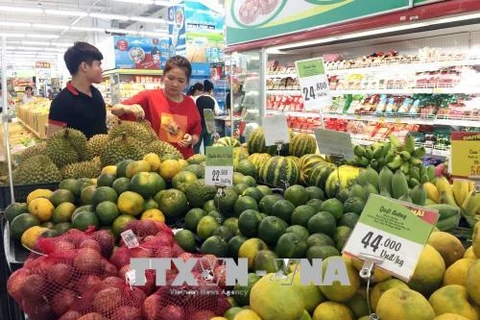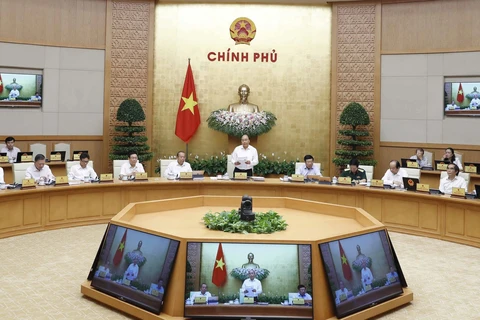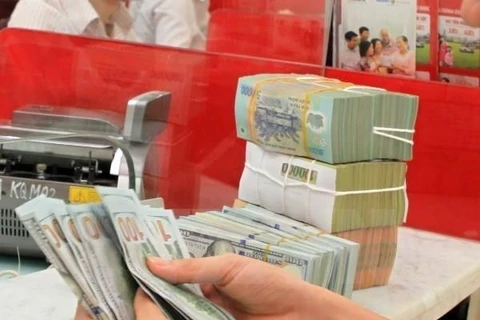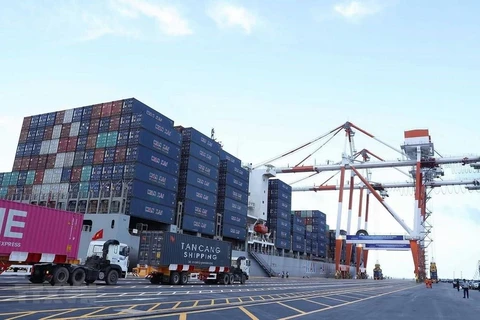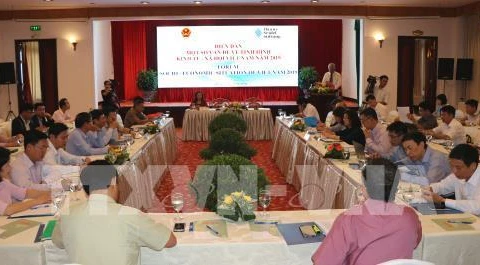 The nine-month CPI increases by about 2.52 percent from the same period of 2018, a very low figure compared to those in recent years, according to the General Statistics Office (Photo: VNA)
The nine-month CPI increases by about 2.52 percent from the same period of 2018, a very low figure compared to those in recent years, according to the General Statistics Office (Photo: VNA) Hanoi (VNA) – The Steering Committee for Price Management held a meeting in Hanoi on September 27, during which Deputy Prime Minister Vuong Dinh Hue said that if there are no unexpected factors, this year’s inflation can be kept at around 3.3 – 3.5 percent.
The committee reported that in Q3, the consumer price index (CPI) has posted month-on-month growth, 0.18 percent in July, 0.28 percent in August and 0.32 percent in September. However, the pace was still slower than forecast, creating more room for controlling this year’s inflation within the limit of 4 percent set by the National Assembly and Government.
Drivers of the CPI expansion this quarter include pork price hikes due to a supply decline as a result of the African swine fever epidemic, and medical service prices aligned with the basic wage increase.
The General Statistics Office estimated that the nine-month CPI increases by about 2.52 percent from the same period of 2018, a very low figure compared to those in recent years.
The core inflation between January and September inched up around 1.91 percent year on year.
Prices of oil and petrol, which have major impact on other goods, have climbed 6.14 – 17.46 percent since the beginning of 2019, lower than the rises of 8.6 – 23.7 percent in the global market.
Noting complex changes in global prices this year, Deputy Minister of Industry and Trade Do Thang Hai said petrol prices will increase in the time ahead, adding that his ministry will coordinate with the Ministry of Finance to align domestic prices with those in the global market, but in a way that will not affect too much economic activities and consumers.
Nguyen Van Viet, Director of the Planning Department under the Ministry of Agriculture and Rural Development (MARD), said the growth in production value of aquaculture and crop farming has helped stabilise prices amidst the impact of the African swine fever on animal husbandry.
The pig herd has shrunk by 17 – 18 percent, but the output and value has dropped by only 9 percent. Meanwhile, the output of beef, poultry, milk and egg has increased, making up for the decreasing pig farming.
The MARD forecast a “not big” shortage in pork supply in the next three months, about 4 – 5 percent or 200,000 tonnes of pork.
Voicing concern about pork supply, Deputy PM Hue, who is also head of the steering committee, asked the MARD to have more prudent evaluation and prepare detailed responses since China is worrying about a pork crisis, and traders have begun to accumulate the meat in Vietnam for export to its northern neighbour.
He asked ministries, sectors and localities to continue keeping a close watch on supply and demand to take actions to stabilise the market when necessary, especially in the coming New Year, Christmas and Lunar New Year holidays./.
VNA
